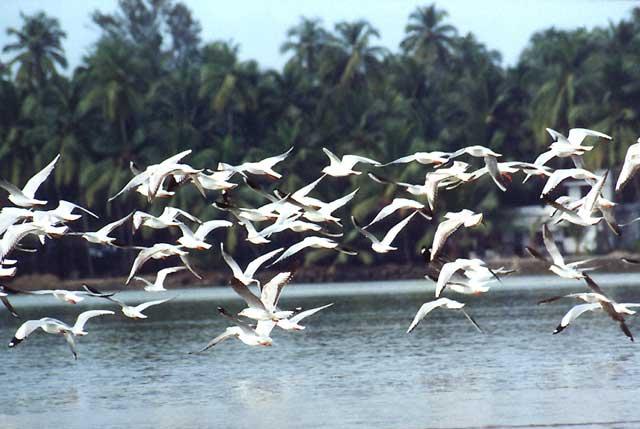A new intergovernmental task force to curb the illegal killing of birds crossing one of the world’s greatest migration paths will be high on the agenda at this year’s largest wildlife summit, which takes place in Manila next month.

The East Asian-Australasian Flyway spans 22 countries from the Russian Federation to Alaska in the USA in the north, through much of Eastern Asia to the Western Pacific and Australia and New Zealand in the south.
Many millions of migratory birds, which travel along the Flyway twice yearly, will receive greater protection if the proposal is adopted.
Delegates from over 120 countries will gather in the Philippines from October 23 to 28, 2017, for the 12th triennial meeting of the Convention on Migratory Species (CMS) or COP12, where they will consider the submission.
The “Task Force on Illegal Hunting, Taking and Trade of Migratory Birds in the East Asian-Australasian Flyway” will build on the successes of a similar initiative for migratory birds in the Mediterranean, agreed at COP11 in in Quito, Ecuador in 2014. The Mediterranean Task Force has proved to be a key forum to promote the exchange of best practice and information between countries facing the same challenges and also with other members of the Task Force. At its meetings in Egypt and Malta, the Task Force developed indicators and a scoreboard to measure progress at national level. The Asian group will also develop guidelines and recommendations, and will assist countries in preparing national action plans to curb illegal hunting and trade.
Dr Bradnee Chambers, Executive Secretary of CMS, said: “Intensive hunting and illegal killing are driving many endangered bird species to the brink of extinction. Countries which they transit share a joint responsibility to implement measures to protect them. The proposed task force for the East Asian-Australasian Flyway feeds into a wider, collaborative strategy to combat global wildlife crime and strengthen efforts to ensure that migratory species are managed sustainably and legally.”
Migratory birds face many threats over the long distances they travel. Most notable is the destruction of their habitats, which are critical for feeding, resting and breeding.
Yet, in many parts of the world, birds are being deliberately and illegally killed, trapped, or traded at an unprecedented scale. According to BirdLife International, around 25 million birds are killed annually in the Mediterranean, with some species now at risk, including Pallid Harriers, Egyptian Vultures and several species of songbird.
Earlier this year, the Secretariats of the CMS and the Bern Convention joined forces and developed a common self-assessment scoreboard to measure and benchmark progress on the eradication of illegal killing for governments to use at national and regional level.
The joint tool uses standardised methods, which will also help facilitate the implementation of other initiatives such as the Tunis Action Plan 2013-2020 for the Eradication of Illegal Killing, Trapping and Trade of Wild Birds under the Bern Convention.
The indicator framework offers national administrations a simple tool, which makes it possible for countries to assess their progress.
“International efforts to tackle the illegal killing, taking and trade in birds just became easier. The scoreboard will contribute to the prioritisation and commitment of resources by national administrations, NGOs and international actors,” said Dr Chambers.
“This tool will greatly aid countries in their monitoring and reporting commitments and will provide a political incentive to reduce illegal killing worldwide.”
